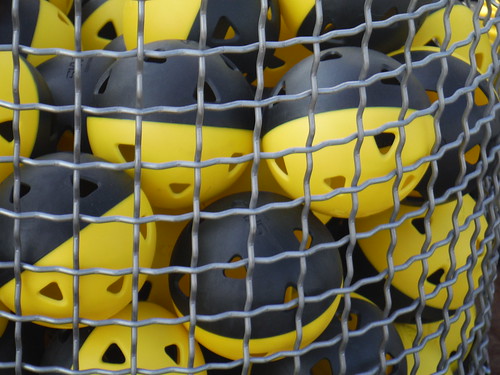
The latest customized contraptions along the Cuyahoga River bulkheads were added this month to help provide habitat for migrating fish, and the elements used in this phase of the project might surprise you.
Cuyahoga County Planning Commission, with the help of Biohabitats and the Regional Sewer District, installed the iteration of these baskets October 7 along the steel bulkheads of the Cuyahoga River navigation channel. They are intended to provide a safe space for fish migrating up or down the channel, a stretch that is otherwise "daunting," as Biohabitats describes it.





